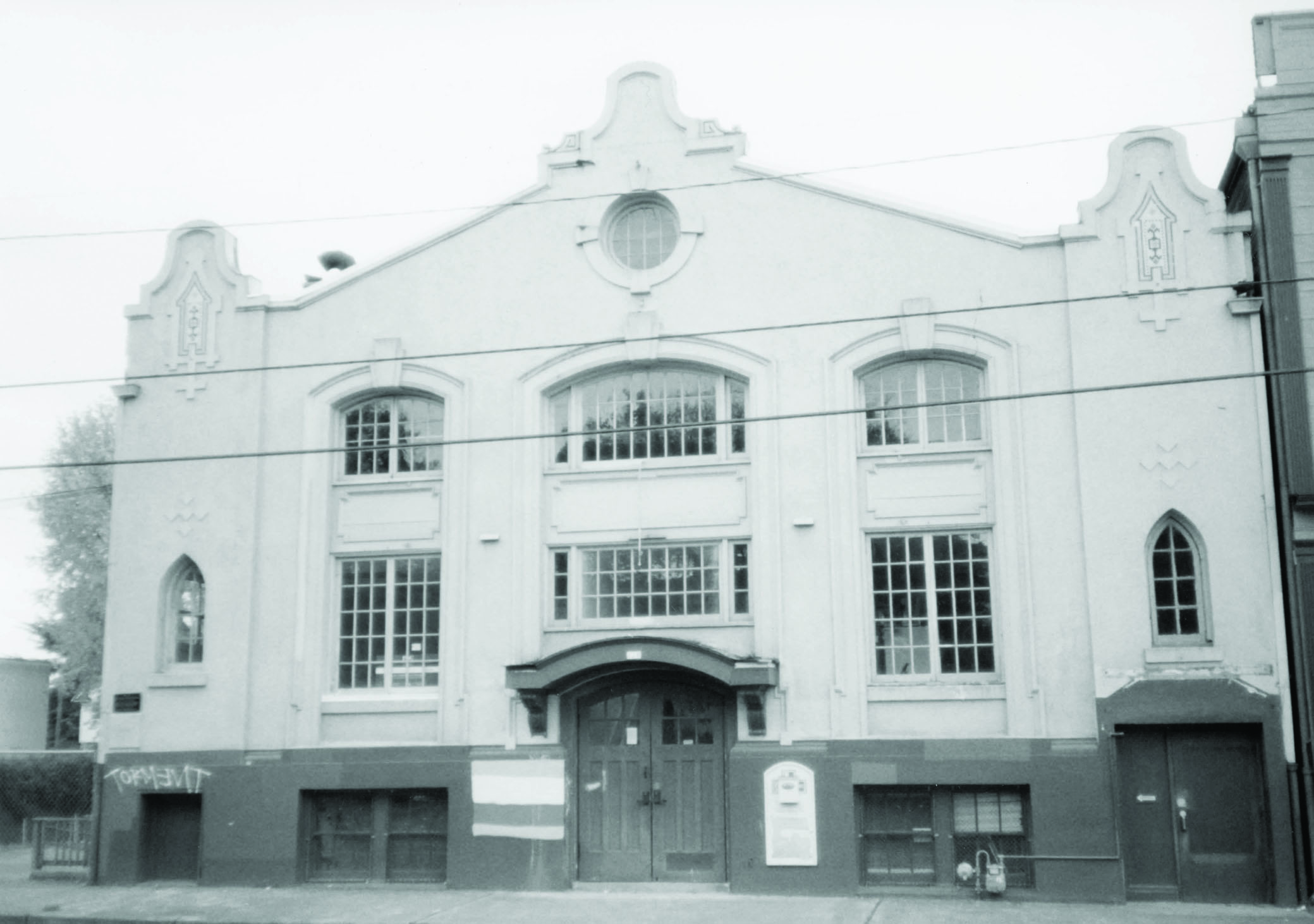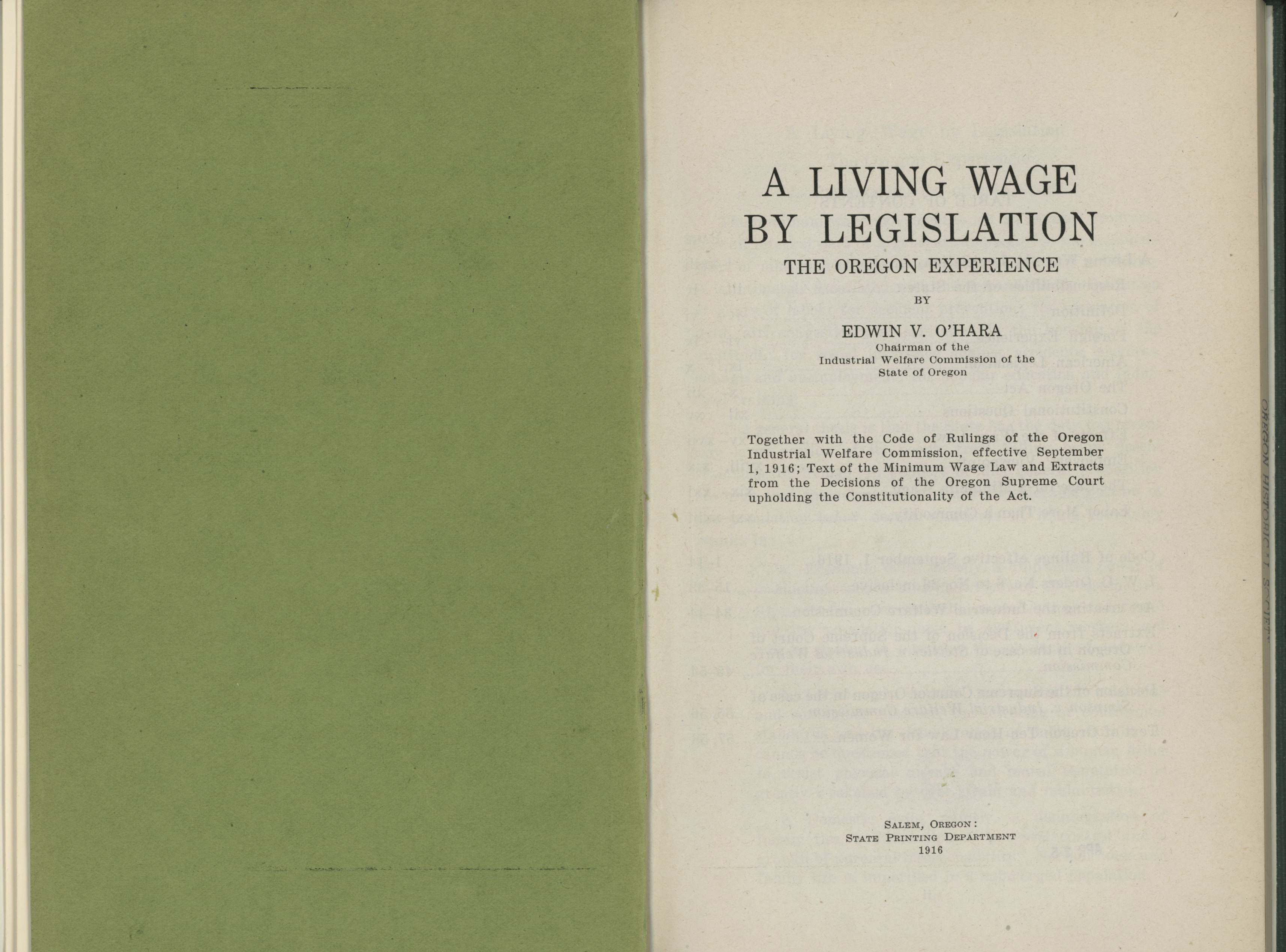Caroline J. Gleason—Roman Catholic nun, social reformer, and educator—helped shape Oregon labor law and the state's social conditions through the numerous social workers she trained.
Born in 1886 to politically active Roman Catholic Irish and French-Canadian parents in Minneapolis, Minnesota, Gleason was educated at Catholic schools before matriculating to the University of Minnesota. Following graduation in 1908, she joined the faculty at St. Mary's Academy in Portland. In 1910, she left Portland for two years to pursue graduate work at the Chicago School of Civics and Philanthropy, where she became interested in the conditions of working women in northeastern mills and factors. Returning to Portland in 1912, she was hired as the field secretary for the Catholic Women's League, a position that required her to teach evening classes as well as administer the League's employment bureau.
In 1912, the Oregon Consumers League asked Gleason to organize a staff to survey women's working conditions in Oregon's factories, stores, and offices. Those findings became the data for Oregon's passage of the nation's first minimum wage and maximum hour law in 1913 and the U.S. Supreme Court's 1917 decision upholding the law in Stettler v. O'Hara. To implement the new law, Governor Oswald West (1911-1915) created the Industrial Welfare Commission, with Gleason as executive secretary.
Gleason became Sr. Miriam Theresa when she joined the Sisters of the Holy Names at Marylhurst, Oregon, in 1916. She chose a teaching community to follow her vocation, because she believed that Christian education was a prime means for improving personal lives and social conditions. The same year that she entered the sisterhood, she received a master's degree in public service and research from the University of Oregon.
In 1924, Sister Miriam became the first woman to receive a Ph.D. from the School of Social Work at the Catholic University of America in Washington, D.C. She continued teaching at St. Mary's Academy until 1930, when the Order opened Marylhurst College and she became the dean of the Sociology Department. Her doctoral dissertation on the Oregon labor movement was published by the U.S. Department of Labor in 1931.
In the mid-1930s, Sister Miriam was asked to mediate disputes over Oregon's wage and hour law. In 1941, she was appointed dean of the Social Science Department at Holy Names College in Spokane, Washington. She returned to Marylhurst College two years later as chair of the Sociology Department, a position she held until 1960.
In 1951, the Portland Oregonian named Sister Miriam as one of the twenty-five most outstanding women in Oregon history during the previous hundred years. She died at the Marylhurst convent of the Holy Names Sisters on May 12, 1962, at the age of seventy-six.
-
![]()
Caroline Gleason (Sister Miriam Teresa), 1956..
Oreg. Hist. Soc. Research Lib., bb002700
-
![]()
St. Mary's Academy in Portland, 1934.
Courtesy Oreg. Hist. Soc. Research Library, 005952
Related Entries
-
![Ancient Order of Hibernians (Portland Division)]()
Ancient Order of Hibernians (Portland Division)
The Ancient Order of Hibernians is an Irish Catholic fraternal organiza…
-
![Oregon Industrial Welfare Commission]()
Oregon Industrial Welfare Commission
In the spring of 1913, the Oregon legislature created the first compuls…
-
![St. Mary's Academy]()
St. Mary's Academy
St. Mary’s Academy in downtown Portland is a Roman Catholic high school…
Related Historical Records
Map This on the Oregon History WayFinder
The Oregon History Wayfinder is an interactive map that identifies significant places, people, and events in Oregon history.
Further Reading
Brandt, Patricia, and Lillian A. Pereyra. Adapting In Eden: Oregon's Catholic Minority 1838-1986. Pullman: Washington State University Press, 2002.
Schoenberg, Wildred P., S.J. A History of the Catholic Church in the Pacific Northwest 1743-1983. Washington, D.C.: The Pastoral Press, 1987.
Strawn, Carole, S.N.J.M. "Gleason, Miriam Theresa (1886-1962)." In The Encyclopedia of American Catholic History. Edited by Michael Glazie and Thomas J. Shelley. Collegeville, Minn.: The Liturgical Press, 1997.




